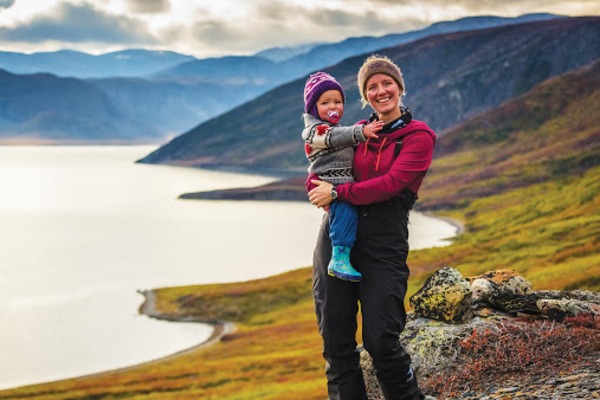Too Early For Predictions

Due to COVID-19, the Canadian government closed the Canadian Arctic to cruise travel entirely for 2020, and Adventure Canada was forced to cancel its entire season.
“While we were disappointed, we wholeheartedly supported these measures – we visit many small, and due to their remoteness, vulnerable communities, and the health and safety of the places we have the privilege of visiting is our top priority,” Cedar Swan, the CEO of Adventure Canada told Travel Courier. “What we’ve seen in response is that the enthusiasm for polar travel is there. 48% of our Arctic clients have transferred to a future travel date. The remaining 52% cancelled their trip, but have expressed to us that they will likely book again in the future.”
Although she says it is still too early to predict the future of Arctic travel, the company is poised for a June 2021 return and is already preparing to adapt to a variety of health and safety standards as they vary from region to region.
“We predict there will be a strong desire to travel to less populated places in the future, with opportunities to better appreciate wilderness and the outdoors. However, plans must be made cautiously in order to be responsible,” she stressed. “Right now, there are more questions than answers regarding what communities and governments may determine is necessary for future tourism in these regions. In terms of health care infrastructure, will there be enhanced medical facilities? Will medical evacuations be handled differently? Will there be a designated community quarantine facility, and will visitors access this facilitate or will there be an alternative? How will northern airports change, and what protocols will be around this? What will port control look like going forward? These conversations and many more are taking place, and from an operator perspective, we must remain patient and take our lead from the wishes of the local communities that we visit.”
As a specialist in polar travel, she said a lot will depend on when a vaccine is available to people globally, but also specifically in the Arctic.
“We don’t know what a day this August will look like, never mind next August. We are prepared to adapt in order to adopt new norms and share what we love doing – connecting to the natural world and each other through travel experiences,” she said.
As travel professionals, she said travel companies must proceed with the utmost caution.
“The world is watching. If we proceed responsibly and with care, travellers and host communities around the world will slowly reconnect with the idea of travel,” she said. “I hope it is a wake-up call for the tourism industry to renew purpose and look at how it can be a positive contributor to regenerative ecosystems and economies and support cultural integrity.”
With the operational pause across the board, companies have the unplanned opportunity to explore these opportunities hand in hand with host communities.
“Ultimately, I hope this pandemic generates not just awareness, but action,” she said. “Arctic communities are in need of enhanced infrastructure for the physical and mental health of the people that call this place home. If the call to bring visitors into communities helps bring that about for local populations, that is a win.”


